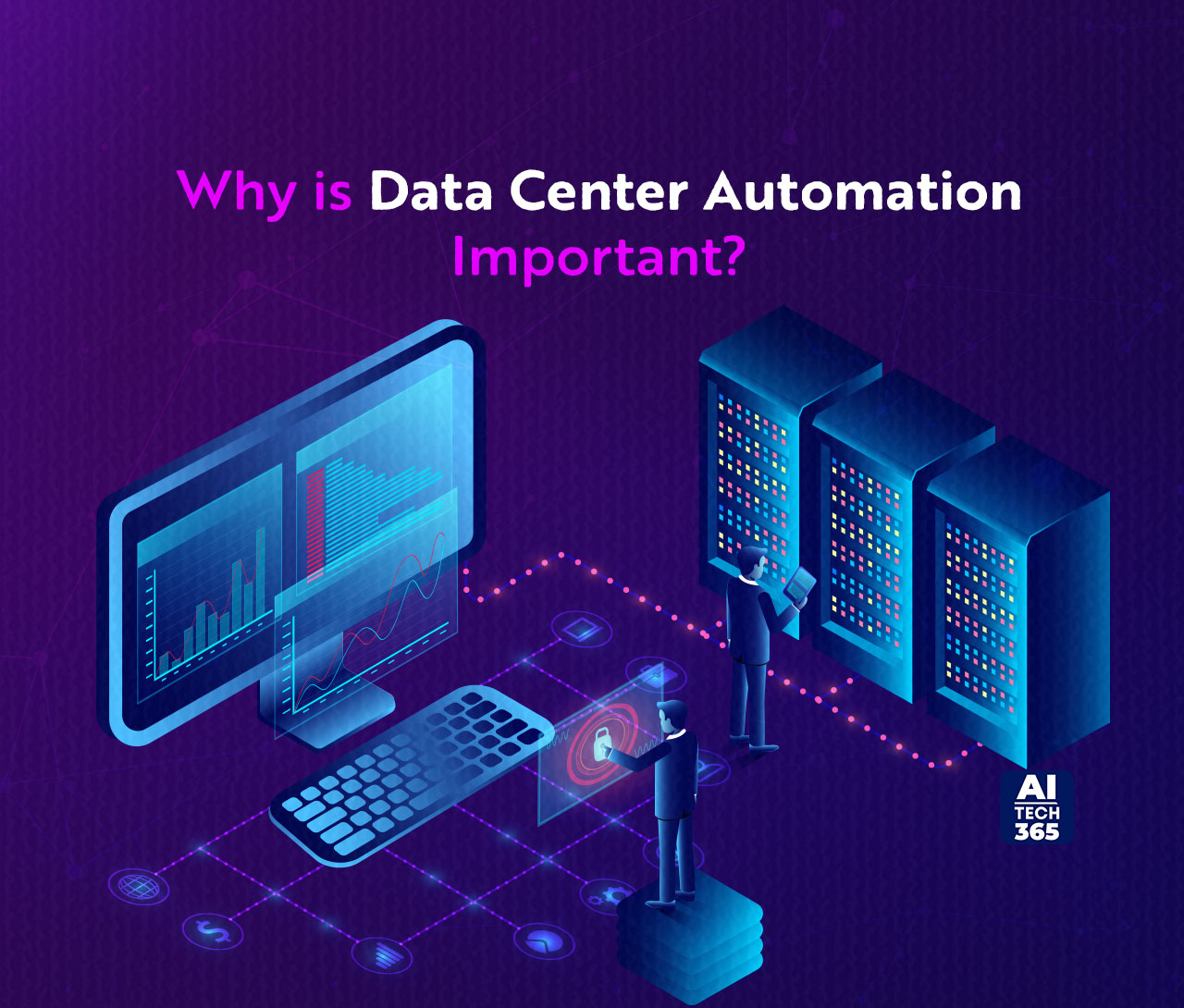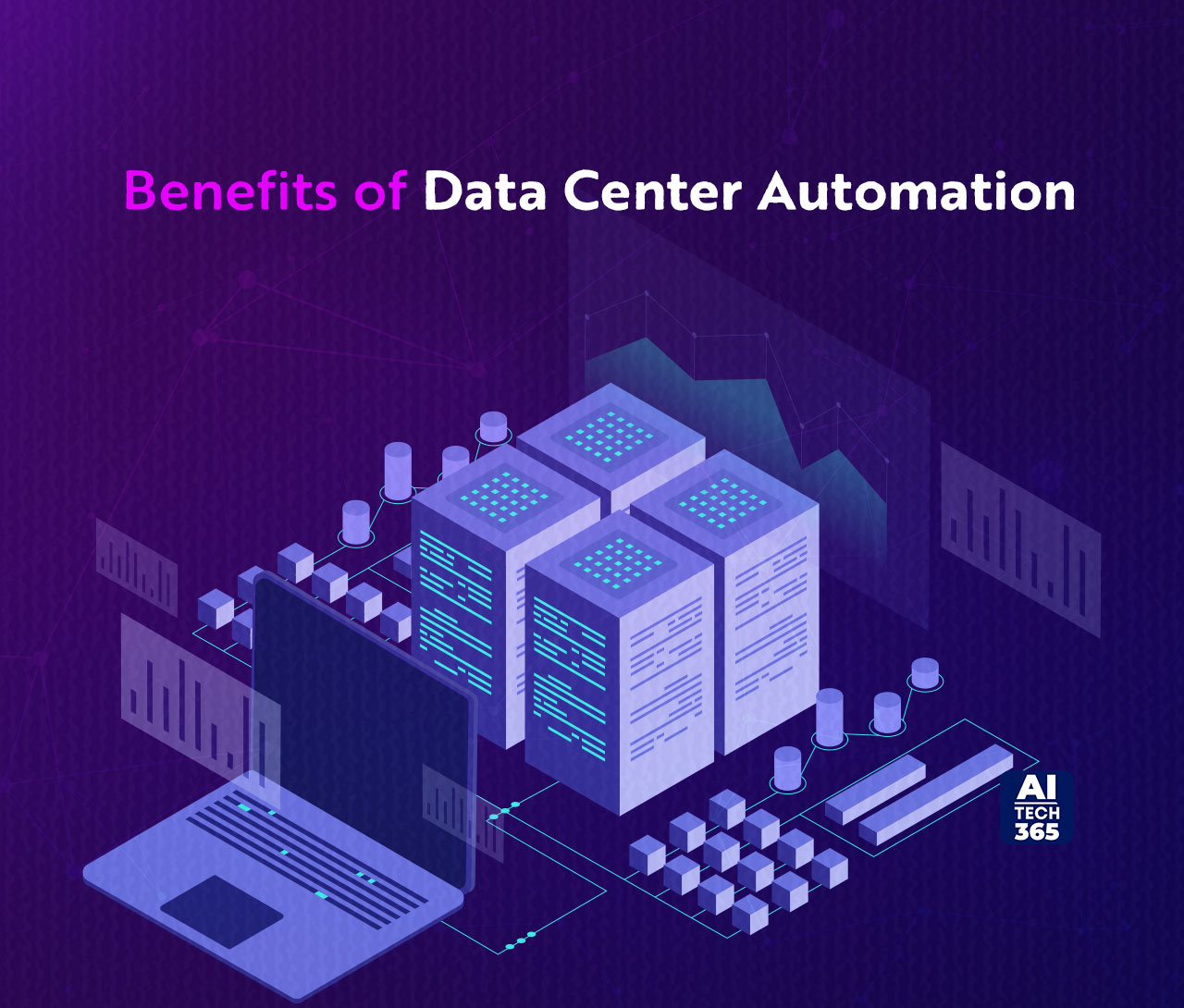Data centers these days can be a real headache to handle. We’re talking about over 8000 data centers worldwide! Dealing with them using old-school methods is a total pain. You’ve got to juggle a bunch of tools and put in a ton of manual effort, which wastes a lot of time and is prone to errors. And guess what? All that mess leads to wasted resources, sluggish online service, and even costly downtime.
Data center automation is the solution to this problem. This modern approach increases operational efficiency and agility, reducing the time needed by IT professionals to perform routine tasks. All of these ultimately lead to better customer satisfaction.
What is Data Center Automation?
Data center automation involves using technology and software to streamline data center operations. It automates tasks like provisioning, configuration, patching, and monitoring. The aim is to boost efficiency, reduce errors, increase uptime, and enhance security.
It enables IT teams to focus on more strategic initiatives by automating repetitive tasks and streamlining processes, hence improving service levels in general.
Why is Data Center Automation Important?
The global data center market is estimated to pocket a revenue of $344 billion by 2024. This rising traction is due to the adoption of data-intensive technologies available.
There were 333.34 million businesses worldwide in 2021 and this number is still growing. Most of this depends on data and the speed at which they can provide customer services to be successful. This is one of the crucial aspects of data center automation.
Automation can make day-to-day operations almost autonomous. Ideally, it would be great if the data center provider had API access to the infrastructure. This way, they could easily work with public clouds and allow customers to smoothly move their data or workloads from one cloud to another. It’s all about making things convenient and flexible for everyone involved. Data center automation is primarily delivered via software solutions that provide centralized access to all or most data center resources.
Traditionally, this access enables automation of storage, servers, networks, and other data center management tasks. These centers are extremely valuable as they save human computational time, provide insight into server nodes and configurations, automate routine procedures such as patching, updating, and reporting, generate and program all data center scheduling and monitoring tasks, and implement data center processes and controls per standards and policies.
What is Data Center Orchestration?
Data center orchestration is a process of making data centers efficient by orchestrating and automating processes. It involves workflow that replaces repetitive, slow, manual tasks with automation.
Simply put, it refers to organizing and coordinating different services and tasks to create a highly functioning responsive data center.
Also Read: How to Harness the Power of AI in Data Analysis: A Step-by-Step Guide
Benefits of Data Center Automation
Improved Workflow and Productivity
Automated workflows are super efficient leading to better customer engagement. They eliminate the hassle of manual hand-offs and approvals, making sure that tasks are done consistently and accurately. Plus, they let users handle their own resources in a jiffy, taking a load off the IT staff.
Increased Utilization of Existing Resources
Automation helps maximize the use of existing resources by identifying underutilized assets and reallocating them as needed. It streamlines resource management by automating provisioning and de-provisioning, ensuring efficient usage and cost savings.
Central Repository
Data center automation often relies on a central repository for all data center information, creating a single source of truth. This repository includes data about servers, storage, networks, applications, services, and users, ensuring everyone in the organization has access to up-to-date information. It simplifies monitoring and managing the data center’s performance, helping to identify issues and optimize resource allocation.
Improved Collaboration Across Functional Teams
By defining roles and responsibilities explicitly and ensuring that activities are completed by the correct individuals in the proper order, automated processes enhance synchronization and collaboration.
Challenges of Data Center Automation
Here are some challenges that are more often than not experienced in the implementation of data center automation:
- Silos of Automation: Automation management in the data center using scripting and platform-specific tools can lead to silos of automation. Such tools require continuous updating and tend to create challenges in the management of workloads.
- Virtual and Cloud Complexity: Data centers that integrate virtual and cloud-based environments bring along the problem of managing many machines on the same network. The complexity can be further increased if there is heterogeneity in the combination of on-premise, virtual, and cloud computing environments.
- Integration and Contextualization: The integration and contextualization of network automation with the end-to-end digital infrastructural setup is a challenge. The planning and evaluation of how the automation interacts with other tools and management systems are not that easy.
- Energy Usage and Costs: Data centers consume tremendous amounts of energy. Data centers produce 35GW by the end of the decade, enough electricity to power 6,482,400 American Low efficiency in energy use can drive up costs. Monitoring and optimizing energy consumption is one of the challenges data centers have to encounter.
3 Best Data Center Automation Tools
- OpenText Data Center Automation: If you’re looking for a way to streamline your data center operations, OpenText has got you covered. Their data center automation solution takes care of all those time-consuming service governance tasks like patching, compliance management, process orchestration, and provisioning across different server operating systems. What’s great is that it comes with a super user-friendly interface and customizable workflows, and even integrates seamlessly with other OpenText tools. You also can get a complete and holistic view of all the vulnerabilities in your data center.
- Ansible Tower: Ansible Tower is a super handy automation platform that lets you automate all those nitty-gritty data center tasks and controls. It’s like having a magic wand for your developer environment, providing a bunch of protocols to build and seamlessly integrate with application software. The best part? It brings consistency to your workflow.
- BMC AMI Cloud and BMC Helix Discovery: BMC knows a thing or two about data center management, and they’ve got some pretty slick solutions to prove it. Their data center management tools automate routine events, fix problems, and provide high-speed server automation, secure network management, and data center discovery mapping. In particular, BMC AMI Cloud and BMC Helix Discovery are part of their suite of tools that make data center management super efficient.
Bottom Line
Data center automation is not a faraway dream. It’s already here, transforming the way data centers work. It enables companies to maximize their resource utilization, respond swiftly to changing market conditions, and expand rapidly. It also allows IT teams to concentrate on critical projects that spur innovation and growth by freeing up important time and resources.
This is because automation is becoming a crucial element for success in modern data centers due to their growing complexity and demands. In the current digital era, adopting automation is not only a wise business move but also a requirement.





